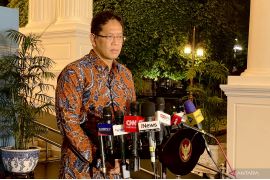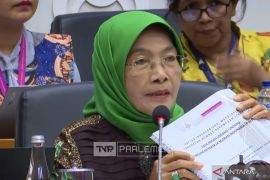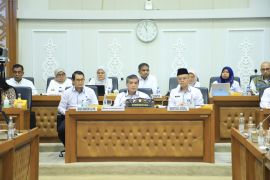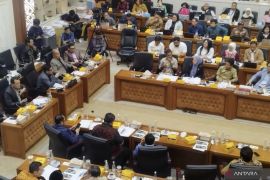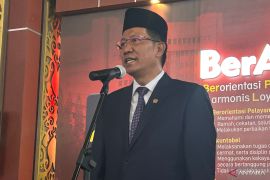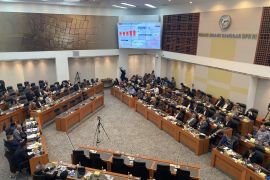The draft law seeks to ban consumption of alcoholic drinks , a motion initiated mainly by Islamic political parties.
"Before being passed into law the bill should be reviewed as the aspects of state revenues and employment should be seriously considered," coordinator of the People Ranks of Anti Corruption and Criminalization (BRAKK), Hans Suta Widhya said.
Hans said he was aware of the negative effect of alcoholic drink on the people but many workers would lose their jobs if production of alcoholic drinks is banned.
"Millions of people could lose their jobs as a result of the policy. Therefore we ask that the law should not ban but control distribution of alcoholic drinks," he said here on Tuesday.
The negative effect of the alcoholic drink consumption could be controlled without increasing the countrys unemployment rate, her added.
He said based on a research by CSIS in 2015 ban on production and consumption of alcoholic drinks would result in state losing an income of Rp21.82 trillion or 0.11 percent of the countrys Gross Domestic Product (GDP).
"It is not included income in excise on alcoholic drink Rp4.9 trillion in 2014 and Rp6 trillion in 2015. There are also losses in income taxes from the restaurant and hotel sector of production and distribution activities would be halted," he said.
More than 100,000 workers would lose their jobs including workers of alcoholic drink factories and companies and related sector such as from the transport , distribution, agriculture sectors, he said.
The largest number of workers losing jobs would be in the agricultural sector , the supplier of the basic material for alcoholic drinks and services, he added.
"Worse still is that ban on alcoholic drink would revive black market that could not be easily controlled," he said.
Two Islamic parties in Indonesia have proposed legislation that would ban all consumption of alcoholic drinks and bring jail terms of up to two years for offenders.
It was not immediately clear how much support there would be for the bill put to parliament, although previous moves to crack down on alcohol consumption have been seen as posturing to appeal to voters before the Muslim fasting month of Ramadan.
"Under the bill, consuming alcoholic beverages could land a person in jail as it will be treated similarly to drug trafficking," Muhammad Arwani Thomafi, a member of one of the two parties, was quoted as saying.
The bill seeks to ban the sale, production, distribution and consumption of all beverages containing more than 1 per cent of alcohol, a report said.
Indonesia, which has a population of around 250 million, has seen fast-growing sales of alcoholic drinks.
Indonesia is the tenth-largest beer consumer in Asia and has the most Guinness stout drinkers in the region. Beer sales have climbed 54 per cent over the past decade.
However, a survey by market researcher Nielsen found that, in 2014, only 2.2 per cent of Indonesians over the age of 20 had consumed alcohol in the previous 12 months.
A regulation banning the sale of alcoholic drinks at mini-markets has been in force although they will still be sold at supermarkets, hotels, bars and restaurants. (*)
Editor: Heru Purwanto
Copyright © ANTARA 2015
